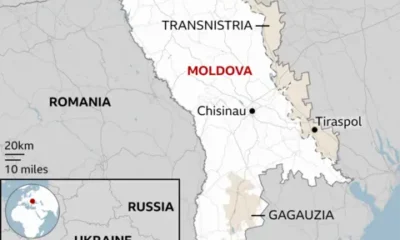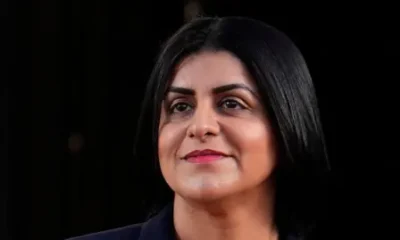FOR MUCH OF our recent history, the island of Ireland has operated across multiple currencies, systems, and identities. Instead of being a disadvantage, this fluidity should be one of our greatest strengths – particularly in the creative industries, where storytelling has always transcended the island’s borders.
Much of the “Shared Island” conversation remains focused on physical infrastructure: roads, bridges, and trade. While these are important, they are not the only foundations of a connected society.
My work as an independent producer involves sharing stories created on these islands with audiences all over the world. Culture, storytelling, and media play a crucial role in shaping how future generations understand the island they call home.
Minister O’Donovan’s announcement earlier this year of a Shared Island Cultural Cooperation Fund was a welcome step. Now, how it is allocated could be a game-changer for the independent production sector.
Our screen industries have already proven the power of all-island collaboration. Films and series like Saipan, Kneecap, Puffin Rock, and Pablo amongst others have all benefited from cross-border funding, demonstrating that cooperation strengthens creative output.
Despite this success, children’s media, and particularly animation remains underfunded and undervalued, facing mounting challenges in the digital age.
Socially connected
Children’s programming has a unique ability to bridge divides, yet it is increasingly under threat from the dominance of global platforms like YouTube and social gaming platforms where children consume more of their content.
With little oversight, these platforms have the potential to dilute cultural heritage, feeding young audiences an algorithm-driven diet of content that weakens their connection to local stories. If we do not intervene, young audiences will consume less locally produced programming, weakening their connection to their indigenous culture and heritage.
This is why we need this Shared Island Cultural Cooperation Fund. If allocated appropriately such a fund would do more than support the creative economy—it would play a vital role in fostering social pride, empathy, and civic appreciation in young audiences.
A shared island is not just about physical connectivity; it’s also about social connectivity. If we are serious about building a sustainable, shared future, we must recognise that the stories children grow up with shape their sense of identity, belonging, and community.
Public service media has always played a role in this, yet children’s content that prioritises social impact is often sidelined when economic priorities don’t align with social and cultural needs.
A dedicated fund would not only secure this content’s future but also open doors for increased international co-production, a complex yet essential part of film and TV financing.
Funding would allow more people to upskill, gain experience, and navigate the intricate world of rights, licenses, and territories. A Shared Island Initiative could develop strategies to streamline collaboration for broadcasters, ensuring real value for licence fee payers.
Building careers on the island
In the past, Irish creatives, both in front of and behind the camera, have had to leave the island to pursue their ambitions. But in recent years, we’ve witnessed a thriving industry making waves on the global stage.
The Shared Island Cultural Cooperation Fund could help us to create structured career pathways, allowing talent to gain experience, develop skills, and achieve excellence without emigrating. This would truly transform the industry across the island.
Supporting career progression is essential in an industry often dominated by freelance and gig work. Junior professionals and trainees struggle to build sustainable careers, and without proper structures, talent can be lost.
Any fund that improves this could help producers through salary subsidies, structured training programmes. Industry placements would ensure that newcomers can access opportunities. Without a dedicated funding structure, we risk stifling our industry’s growth and falling short of our potential. This can only harm the future of our creativity.
Moreover, transferable skills are key to expanding the industry. Many professionals in film and TV have transitioned from other sectors, bringing fresh perspectives and innovation.
The industry must remain open and accessible to people from all backgrounds—not just those with conventional Film and TV career pathways. A broader, more inclusive industry will create richer, more diverse content that speaks to the full spectrum of life on this island.
As much of my work focuses on telling stories to younger generations, it is vital that we attract the talents of the next generation.
By creating accessible content that reflects the shared heritage and contemporary culture of Ireland and the UK, the screen sector can reach new audiences and preserve valuable cultural assets.
A shared island needs shared stories. Now is the time to invest in the storytellers of the future.
Gavin Halpin is the managing director of Paper Owl Films and Board Member of Screen Producers Ireland











